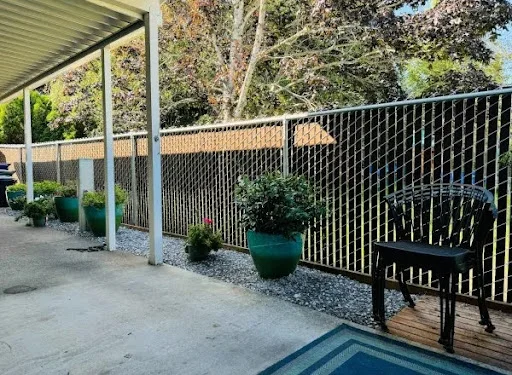Living along Washington’s coastline—from Edmonds to Ocean Shores—offers stunning views, refreshing breezes, and a serene lifestyle. But with that natural beauty comes a serious challenge: salt air corrosion. According to Draper Realty Team, salt-laden moisture carried inland by wind can wreak havoc on many outdoor materials, especially traditional fencing options.
That’s why coastal homeowners are turning to salt air-resistant metal fencing—built to last, designed to protect, and styled to complement the coastal aesthetic. If you’re exploring alternatives to wood or untreated metal, here’s what you need to know to make the best decision for your coastal property, including why many consider vinyl fencing a strong complementary solution as well—like reliable vinyl fencing for your property.
Why Salt Air Is a Problem for Traditional Fences
Salt air is corrosive. It contains microscopic salt particles that cling to surfaces and, over time, degrade materials through a process called oxidation. For fences, this means:
- Rust on untreated or low-quality metals
- Warping and rotting of wood fences
- Peeling paint and breakdown of coatings
According to the American Galvanizers Association, coastal environments can see corrosion rates 5 to 10 times faster than inland areas. That’s why fencing materials near the ocean need to be specially treated or inherently resistant to corrosion.
Best Salt Air-Resistant Metal Fence Materials
When choosing a fence for your coastal home, opt for metals engineered to stand up to salt exposure. Here are the top options:
1. Powder-Coated Aluminum Fences
- Lightweight but strong
- Naturally rustproof
- Powder coating adds an extra barrier against salt corrosion
- Available in a variety of colors and designs
This is one of the most popular choices in coastal areas. Aluminum doesn’t rust, and modern coatings ensure it maintains a clean, stylish look for decades.
2. Stainless Steel Fencing
- High resistance to corrosion
- Offers a sleek, modern appearance
- Best for minimalistic or industrial-style homes
While more expensive upfront, stainless steel offers exceptional longevity—especially grades like 316 stainless steel, which are designed for marine applications.
3. Galvanized Steel with a Protective Coating
- A budget-friendly alternative to stainless steel
- Must be double-coated (zinc galvanization + paint or powder)
- Can mimic the look of wrought iron without the same rust issues
This type of fencing can be strong and decorative but requires more maintenance than aluminum or stainless.
Why Choose Metal Over Wood on the Coast?
While pressure-treated wood can be made resistant to moisture and insects, salt air still poses a challenge. Over time, even treated wood fences can:
- Absorb moisture and swell
- Develop mold and mildew
- Require constant repainting or staining
Metal fencing avoids these issues entirely and requires far less upkeep. For homeowners seeking a long-term solution that’s both durable and attractive, metal is a clear winner.
Maintenance Tips for Coastal Metal Fences
Even salt-air-resistant materials need some care. Here’s how to get the most out of your investment:
- Rinse with fresh water every few months to remove salt deposits
- Inspect for scratches or exposed metal and touch up promptly
- Lubricate hinges and joints annually
If you work with experienced fence installation professionals, they’ll guide you on the best coatings and installation techniques to reduce maintenance and extend the life of your fence.
Blending Functionality with Coastal Aesthetics
Today’s metal fences aren’t just about strength—they’re designed to complement the look of your home. Coastal homeowners often choose:
- Ornamental aluminum fencing for front yards
- Modern horizontal steel slats for privacy
- Decorative panels that mimic traditional wrought iron
For homeowners seeking even more low-maintenance options, vinyl fencing is also popular near the coast for side and backyard installations where salt air exposure is less intense but privacy is key.
Final Thoughts: Invest in Peace of Mind
If you own a coastal home in Washington, your fencing needs to do more than look good—it must endure the elements, especially salty sea air. Salt-resistant metal fencing is an investment that pays off with less maintenance, longer lifespan, and better protection for your property.
Choosing the right material and working with skilled fence contractors ensures your coastal fence will stand strong through the seasons—giving you more time to enjoy those ocean breezes and less time worrying about rust, rot, or repairs.
There’s plenty more where that came from—browse our other helpful content!







